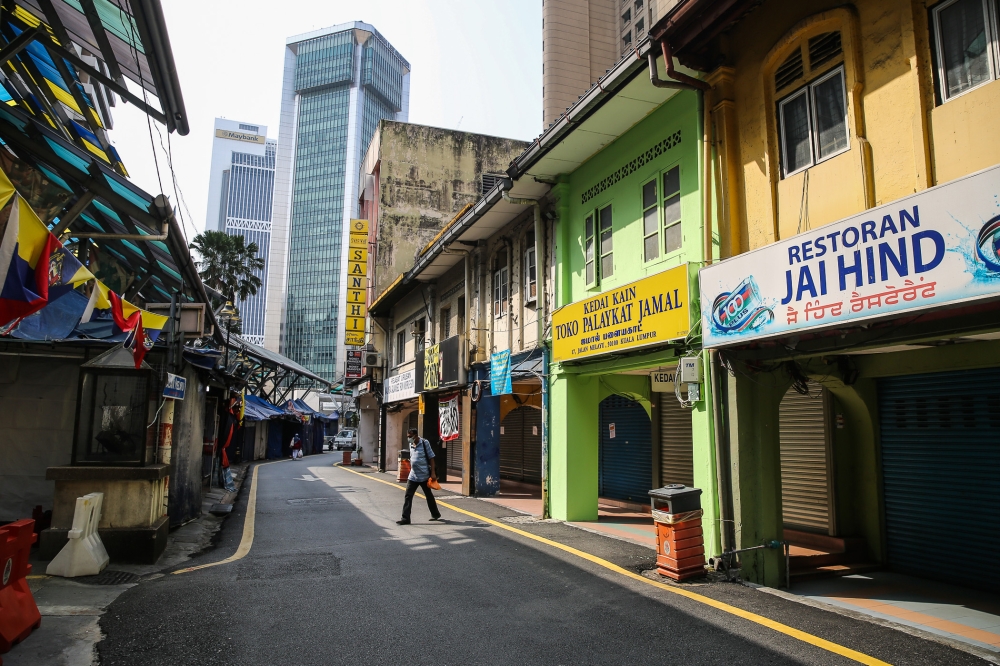NOVEMBER 25 — The Federal Constitution is the supreme law of the land.
The term “law” includes written law, the common law in so far as it is in operation in the Federation or any part thereof, and any custom or usage having the force of law in the Federation or any part thereof.
So says Article 160. The same Article also says that “written law” includes the Federal Constitution and the State Constitutions.
Section 2 of the Interpretation Acts 1948 And 1967 (Act 388) expands written law to include (a) Acts of Parliament and subsidiary legislation made thereunder; (b) Ordinances and Enactments (including any federal or State law styling itself an Ordinance or Enactment) and subsidiary legislation made thereunder; and (c) any other legislative enactments or legislative instruments (including Acts of Parliament of the United Kingdom of Great Britain and Northern Ireland and Orders in Council and other subsidiary legislation made thereunder) which are in force in Malaysia or any part thereof.
The same provision defines subsidiary legislation as any proclamation, rule, regulation, order, notification, by-law or other instrument made under any Act, Enactment, Ordinance or other lawful authority and having legislative effect.
Subsidiary legislation is also called secondary legislation, which may be by-laws, orders, rules or regulations. In Bahasa Malaysia (BM), these may be called “undang-undang kecil”.
“Kecil” they may be but law, nonetheless.
Take the example of the Rules of Court 2012 (ROC). It is subsidiary legislation, made by the Rules Committee and the Subordinate Courts Rules Committee pursuant to the powers conferred by Section 17 of the Courts of Judicature Act 1964 [Act 91] and Section 4 of the Subordinate Courts Rules Act 1955 [Act 55], and with the consent of the Chief Judge of the High Court in Malaya and the Chief Judge of the High Court in Sabah and Sarawak.
Act 91 and Act 55 are called principal legislation.
Order 92 rule 1(1) ROC stipulates that any document required for use in pursuance of the Rules shall be in the national language — that is, BM — and may be accompanied by a translation thereof in the English language, provided that any document in the English language may be used as an exhibit, with or without a translation thereof in the national language.
Order 92 rule 1(2) acknowledges the use of the English language in Sabah and Sarawak. Accordingly, for two Borneo States, any document required for use in pursuance of the Rules shall be in the English language and may be accompanied by a translation thereof in the national language.
Imagine lawyers litigating for their clients, whether plaintiffs or defendants, in the courts in Peninsular Malaysia without compliance with the ROC.
Do we hear foreign parties litigating their cases in Peninsular Malaysia calling the courts racist for the use of BM in the courts?
Now, let’s look at another subsidiary legislation, namely the Advertisements (Federal Territory) By-Laws 1982. It is made in exercise of the powers conferred by Section of the Local Government Act 1976 (Act 171) by the Secretary-General of the Ministry of the Federal Territory, carrying out the functions of the Commissioner of the City of Kuala Lumpur pursuant to Section 4(7) of the Federal Capital Act 1960 (Act 190) and pursuant to Section 103 of Act 171, which the Minister duly confirmed.

By-law 3 on language of advertisements says as follows:
(1) An advertisement shall be in Bahasa Malaysia whether on its own or together with any other language
(2) The words and letter in Bahasa Malaysia shall be given prominence in colour and in more outstanding place than words and letters or characters in the other language used and the size of which shall not exceed the measurement of those in Bahasa Malaysia”
(3) A person shall not exhibit or cause or permit to be exhibited any advertisement that does not comply with paragraphs (1) and (2).
(4) Notwithstanding paragraph (3), if the name of a firm, society or company, as registered under the Registration of Business Act, 1956, the Companies Act 1965 (as it then was), or the Societies Act 1966, comprises of or includes words that are not in the national language it may not be necessary to render the words into the national language.
(5) Notwithstanding the provision of paragraph (4) the Commissioner [of the City of Kuala Lumpur] may require the particulars of the business, company or organisation and such business, company or organisation shall comply with the provisions of paragraph (1) and (2).
By-law 4 on correct use of national language says as follows:
If it appears to the Commissioner that the national language has been used incorrectly in any advertisement, he may by notice in writing order the person who has exhibited the advertisement or who has caused or permitted the advertisement to be exhibited to alter the advertisement so as to correct the error in such manner and within such time as the Commissioner may specify in the notice.
Like the language to be used in the courts in Peninsular Malaysia, the use of BM in advertisements in the city of Kuala Lumpur is governed by law. The law is subsidiary legislation — “undang-undang kecil”, if you like — but law, nonetheless.
There is nothing racist about upholding the law.
* This is the personal opinion of the writer or publication and does not necessarily represent the views of Malay Mail.





















